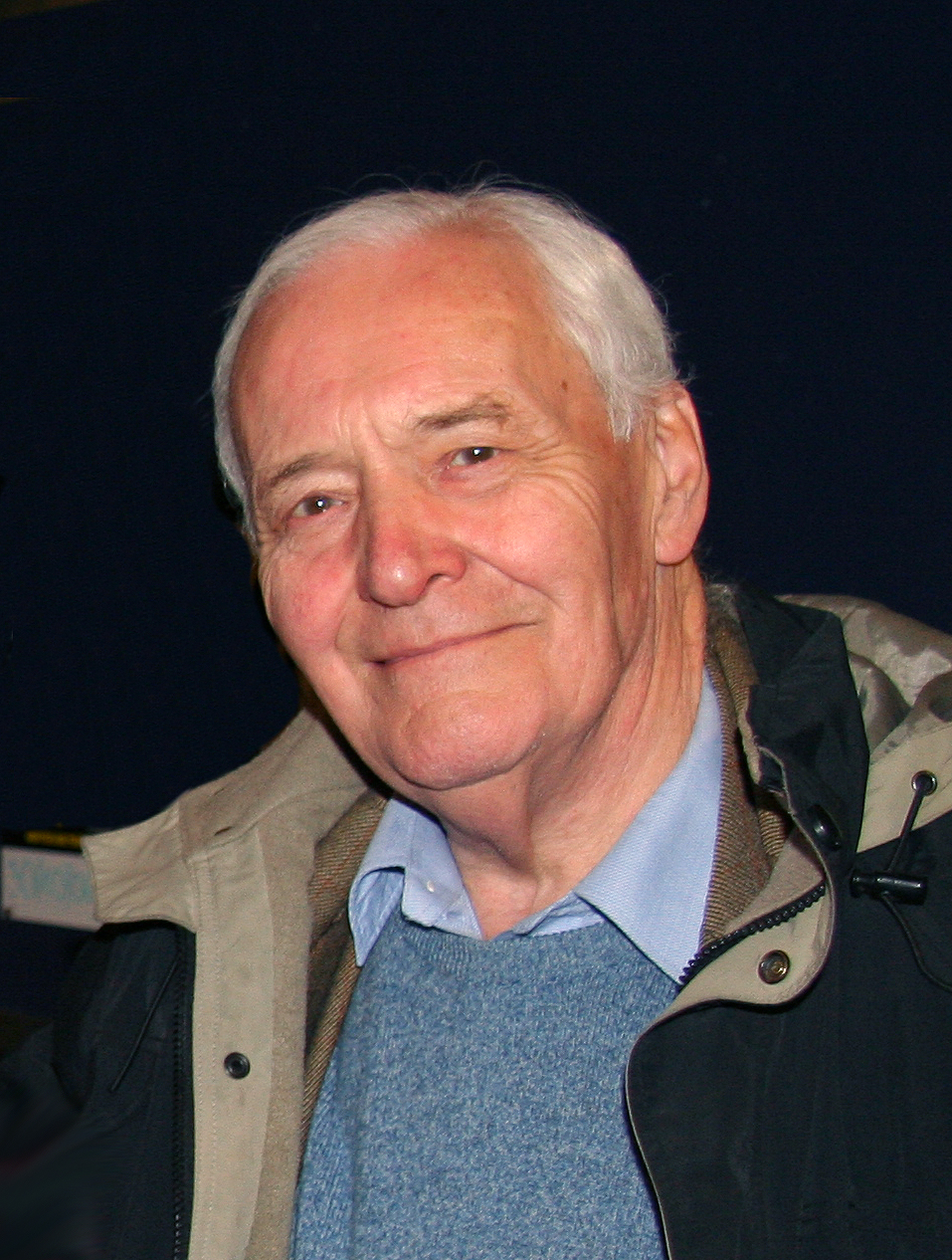Tony Benn: Cytaty po angielsku
“I cannot hand away powers lent to me”
Speech in the House of Commons (20 November 1991) http://hansard.millbanksystems.com/commons/1991/nov/20/european-community-intergovernmental during a debate on the Treaty of Maastricht.
1990s
Kontekst: If democracy is destroyed in Britain it will be not the communists, Trotskyists or subversives but this House which threw it away. The rights that are entrusted to us are not for us to give away. Even if I agree with everything that is proposed, I cannot hand away powers lent to me for five years by the people of Chesterfield. I just could not do it. It would be theft of public rights.
Question Time (22 March 2007).
2000s
Kontekst: I was born about a quarter of a mile from where we are sitting now and I was here in London during the Blitz. And every night I went down into the shelter. 500 people killed, my brother was killed, my friends were killed. And when the Charter of the UN was read to me, I was a pilot coming home in a troop ship: 'We the peoples of the United Nations determined to save succeeding generations from the scourge of war, which twice in our lifetime has brought untold sorrow to mankind.' That was the pledge my generation gave to the younger generation and you tore it up. And it's a war crime that's been committed in Iraq, because there is no moral difference between a stealth bomber and a suicide bomber. Both kill innocent people for political reasons.
“If we can find the money to kill people, we can find the money to help people.”
Interview with Michael Moore in the movie Sicko (2007).
2000s
“All war represents a failure of diplomacy.”
Speech http://hansard.millbanksystems.com/commons/1991/feb/28/the-gulf in the House of Commons (28 February 1991)
1990s
From an issued statement from Mr. Benn on five dockers imprisoned for contempt of court (21 July 1972)
1970s
Speech given in the Cabinet meeting to discuss Britain's membership of the EEC, as recorded in his diary (18 March 1975), Against the Tide. Diaries 1973-1976 (London: Hutchinson, 1989), pp. 346-347.
1970s
Interview with Michael Moore in the movie Sicko (2007).
2000s
Journal entry for 6 June 1996 in Free at Last!: Diaries, 1991-2001 (2003) p. 371
1990s
Afternoon Plus on ITN (29 January 1982)
1980s
Speech in Southampton (25 May 1971).
1970s
“An educated, healthy and confident nation is harder to govern.”
Interview with Michael Moore in the movie Sicko (2007).
2000s
'Heath's spadework for socialism', The Sunday Times (25 March 1973), p. 61
1970s
Speech at Students for a Labour Victory rally, referring to Enoch Powell who was MP for Wolverhampton South West, Methodist Central Hall, London (3 June 1970), as quoted in "Onslaught on Powell by Wedgwood Benn" by Denis Taylor in The Times (4 June 1970), p. 1
1970s
On the same-sex marriage controversy in the Church of England.
"Tony Benn: The glorious revolutionary" http://www.journal-online.co.uk/article/3082-tony-benn-the-glorious-revolutionary, The Journal (26 March 2008).
2000s
Speech http://hansard.millbanksystems.com/commons/1990/nov/22/confidence-in-her-majestys-government in the House of Commons (22 November 1990) on the day Margaret Thatcher announced her intention to resign.
1990s
On not attending an EEC meeting in order to attend a Labour rally (12 December 1975), quoted in 'Mr Benn delays EEC meeting', The Times (13 December, 1975), p. 1
1970s
Speech in the House of Commons (23 October 2000) http://hansard.millbanksystems.com/commons/2000/oct/23/election-of-speaker, cited in Adam Tomkins, "What is Parliament for?" in Bamforth N. and Leyland P. (eds.), Public Law in a Multi-Layered Constitution, Oxford, Hart, 2003, p. 53.
2000s
Paul Waugh, "Benn retires to spend more time with his politics", The Independent, 28 June 1999, p. 5.
1990s
Letter to Bristol constituents (29 December 1974), reprinted in Tony Benn, 'The Common Market: Loss of Self-Government', in M. Holmes (ed.), The Eurosceptical Reader (Springer, 2016), p. 38
1970s
Interview with Michael Moore in the movie Sicko (2007).
2000s
The Guardian (20 June 1983).
1980s
Speech in the House of Commons (13 March 1989) http://hansard.millbanksystems.com/commons/1989/mar/13/adjournment-easter-and-monday-1-may on the Factortame case
1980s
Chairman's closing address to the Labour Party Conference in Blackpool (6 October 1972); Labour Party Annual Conference Report 1972, p. 349
1970s
Speech at an anti-EEC rally (3 June 1975), quoted in 'Heath attack by Mr Benn', The Times (4 June 1975), p. 6
1970s
Interview with Michael Moore in the movie Sicko (2007) Probably derived from older version:
2000s
“When we have a majority we will do it. I think the days of the Lords are quite genuinely numbered.”
On Independent Radio News (12 November 1976), quoted in The Times (13 November 1976), p. 2
1970s
Interview with Michael Moore in the movie Sicko (2007).
2000s
